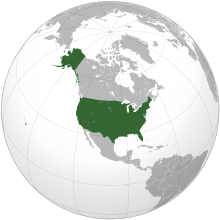US: Teens Being Held In Solitary Confinement
Young people are held in solitary confinement in jails and prisons across the United States, often for weeks or months at a time, Human Rights Watch and the American Civil Liberties Union (ACLU) said in a report released today.
The 141-page report, “Growing Up Locked Down: Youth in Solitary Confinement in Jails and Prisons Across the United States,” is based on research in both US jails and prisons in five states – Colorado, Florida, Michigan, New York, and Pennsylvania – and correspondence with young people in 14 others. The isolation of solitary confinement causes anguish, provokes serious mental and physical health problems, and works against rehabilitation for teenagers, Human Rights Watch and the ACLU found.

“Locking kids in solitary confinement with little or no contact with other people is cruel, harmful, and unnecessary,” said Ian Kysel, Aryeh Neier Fellow with Human Rights Watch and the ACLU and author of the report. “Normal human interaction is essential to the healthy development and rehabilitation of young people; to cut that off helps nobody.”
The report is based on interviews and correspondence with more than 125 young people in 19 states who spent time in solitary confinement while under age 18, as well as with jail and/or prison officials in 10 states.
Human Rights Watch and the ACLU estimate that in 2011, more than 95,000 young people under age 18 were held in prisons and jails. A significant number of these facilities use solitary confinement – for days, weeks, months, or even years – to punish, protect, house, or treat some of the young people held there.
Because young people are still developing, traumatic experiences like solitary confinement may have a profound effect on their chance to rehabilitate and grow, the groups found. Solitary confinement can exacerbate short- and long-term mental health problems or make it more likely that such problems will develop. Young people in solitary confinement are routinely denied access to treatment, services, and programming required to meet their medical, psychological, developmental, social, and rehabilitative needs.
The New York City Department of Corrections, for example, reported that in fiscal year 2012, which ended in June, more than 14 percent of all adolescents were held in at least one period of solitary confinement while detained. The average length of time young people spent in solitary confinement at Rikers Island was 43 days. More than 48 percent of adolescents at Rikers have diagnosed mental health problems.
“Being in isolation to me felt like I was on an island all alone, dying a slow death from the inside out,” said “Kyle B.”, from California, who spent time in solitary confinement while under age 18.
Young people interviewed for the report repeatedly described how solitary confinement compounded the stress of being in jail or prison. They spoke about cutting themselves with staples or razors while in solitary confinement, having hallucinations, and losing touch with reality. Several said they had attempted suicide multiple times in solitary confinement.
Those allowed outside described only being allowed to exercise in small metal cages, alone, a few times a week. Several said they could not get books, magazines, paper, pens or pencils, or attend any classes or programming. For some, the hardest part about solitary confinement was being denied visits and not being able to hug their mother or father.
The solitary confinement of young people under age 18 is itself a serious human rights violation and can constitute cruel, inhuman, or degrading treatment under international human rights law, Human Rights Watch and the ACLU said. Conditions that compound the harm of solitary confinement, such as denial of educational programming, exercise, or family visits, often constitute independent, serious human rights violations.
A number of corrections officials have begun to recognize and speak against the use of solitary confinement, saying that it is costly, ineffective, and harmful.
There are alternative ways to address the problems – whether disciplinary, administrative, protective, or medical – that officials typically cite to justify using solitary confinement, while taking into account the rights and special needs of adolescents, Human Rights Watch and the ACLU said. Youth could be housed in specialized facilities organized to encourage positive behavior. And punishment should be proportional to the infraction, using any short-term isolation as a rare exception.
The federal and state governments should ban placing youth in solitary confinement, Human Rights Watch and the ACLU said. They should also prohibit housing adolescents with adults or in jails and prisons designed to house adults, and strictly regulate and monitor all forms of isolation of young people.
“No one believes that locking a teenager in a closet is an effective way to improve either their behavior or their character, much less to protect them long term,” Kysel said. “Young people have rights and needs that are different from adults; jail and prison practices should reflect those differences and promote their ability to grow and change – we should invest in youth, not banish them.”
